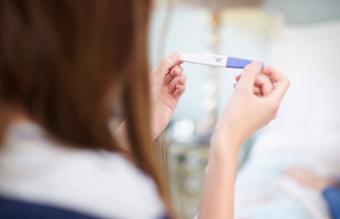
A gynecologist can often tell if you are infertile based on abnormalities in your history, physical exam, and fertility tests. After this infertility evaluation, he can also tell you if your problem is treatable, as well as your average chance of getting pregnant.
Infertility Evaluation

To determine if you are infertile and can or cannot conceive without treatment, or can never conceive, a gynecologist evaluates your ovulation and the anatomy and function of your vagina, cervix, uterus, tubes, and ovaries. All of these must be normal for you to be able to get pregnant.
According the 2015 guidelines of the Practice Committee of the American Society for Reproductive Medicine, an infertility evaluation includes a detailed history and physical exam. This might provide sufficient information to show that you are infertile. If not, your gynecologist will suggest fertility tests to confirm or make a diagnosis.
Your History
Your gynecologic, menstrual, reproductive, medical, and surgical history can provide important clues about your ovulation and reproductive organs. A gynecologist will ask you if you have a history of the following:
- Irregular or absent menstrual cycles: This may suggest hormonal or ovulation dysfunction, ovarian failure, or absent ovaries.
- Never had a menstrual cycle: This might suggest chromosomal, developmental, or hormonal dysfunction.
- Previous pregnancies: Your history of previous pregnancies and their outcome can provide important clues to your current fertility and the need for fewer or additional tests.
- Medical conditions: Chronic illnesses, such as diabetes, can cause infertility or sub-fertility by interfering with ovulation.
-
Previous surgery: This may include removal of, or procedures on, your uterus, ovaries, tubes, cervix, or uterine lining, or known history of adhesions from these procedures.
-
Previous abdominal infection: This may include your tubes, ovaries, or appendix, which can block your tubes or cause adhesions of the ovaries and tubes.
Gynecology Exam

Your gynecology exam can evaluate if your vagina, cervix, uterus, and ovaries are abnormal or absent from previous surgery or infections, or from chromosomal or developmental abnormalities. If you have never had a period, have under-developed breasts, or have little or no axillary and pubic hair, it provides clues to a diagnosis. Other important findings, such as an enlarged thyroid or abnormal hair growth, can indicate a hormone problem.
Fertility Testing
Fertility testing gives your gynecologist additional information on your ovulation, your reproductive organs, and your partner. You may need referral to a fertility specialist for some of the tests or to interpret some of the results. The following are available fertility tests for women, according to a Mayo Clinic review:
- Hormone tests: These tests evaluate the function of your hormone glands, including your ovaries, all of which regulate your ovulation and menstrual cycle.

- Progesterone level: The key hormone of ovulation is your progesterone, which rises only after you ovulate and helps sustain your early pregnancy.
- Ultrasound: A pelvic ultrasound evaluates your uterus, uterine lining, ovaries, and other organs in your pelvis.
- Endometrial Biopsy: The endometrial biopsy is another test of ovulation. It assesses the effects of estrogen and progesterone on your uterine lining.
- Hysterosalpingogram (HSG): An HSG will show if blockage or absence of your fallopian tubes is the cause of your infertility.
- Laparoscopy: A doctor suggests a laparoscopy when he needs to look for additional information on your tubes, ovaries, and uterus, such as to rule out tubal blockage, adhesions, ovarian cysts, and endometriosis.
- Hysteroscopy: A hysteroscopy is done when there is a reason for it. It looks for abnormalities inside the cavity of your uterus.
- Genetic Testing: Genetic testing is reserved for women who have a possibility of genetic abnormalities as a cause of their infertility.
Your Partner
Keep in mind that there is an equal chance that the infertility problem rests with your partner, according to the Mayo Clinic review. He should get a semen analysis early in your evaluation. The results may determine what further steps your doctor will suggest for both of you.
Chance of Making a Diagnosis
Seventy to eighty-five percent of the time, after a complete fertility evaluation of you and your partner, a gynecologist will likely find the reason(s) for your infertility, according to Reviews in Obstetrics and Gynecology. In 15 to 30 percent of cases the history, exam and tests are all normal, and a gynecologist cannot tell if a woman is infertile (unexplained infertility). If so, you still have a chance of conceiving with or without treatment.
Consult Your Gynecologist
A gynecologist can tell you if you are infertile if he finds any abnormalities in your history, ovulation, or reproductive tract. Consult your gynecologist if you have any concerns about your fertility, especially if your history suggests that you might have a problem that causes infertility.







